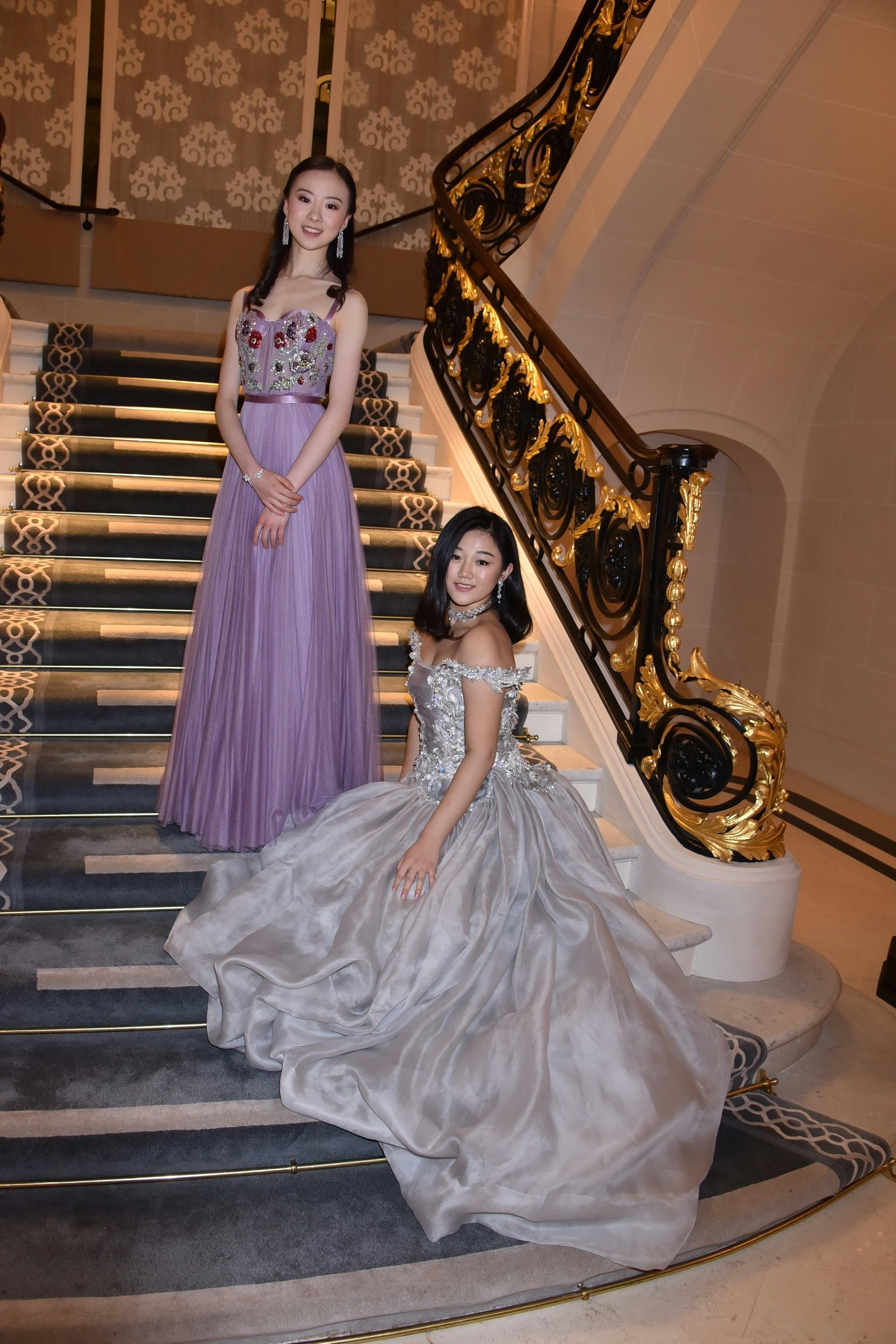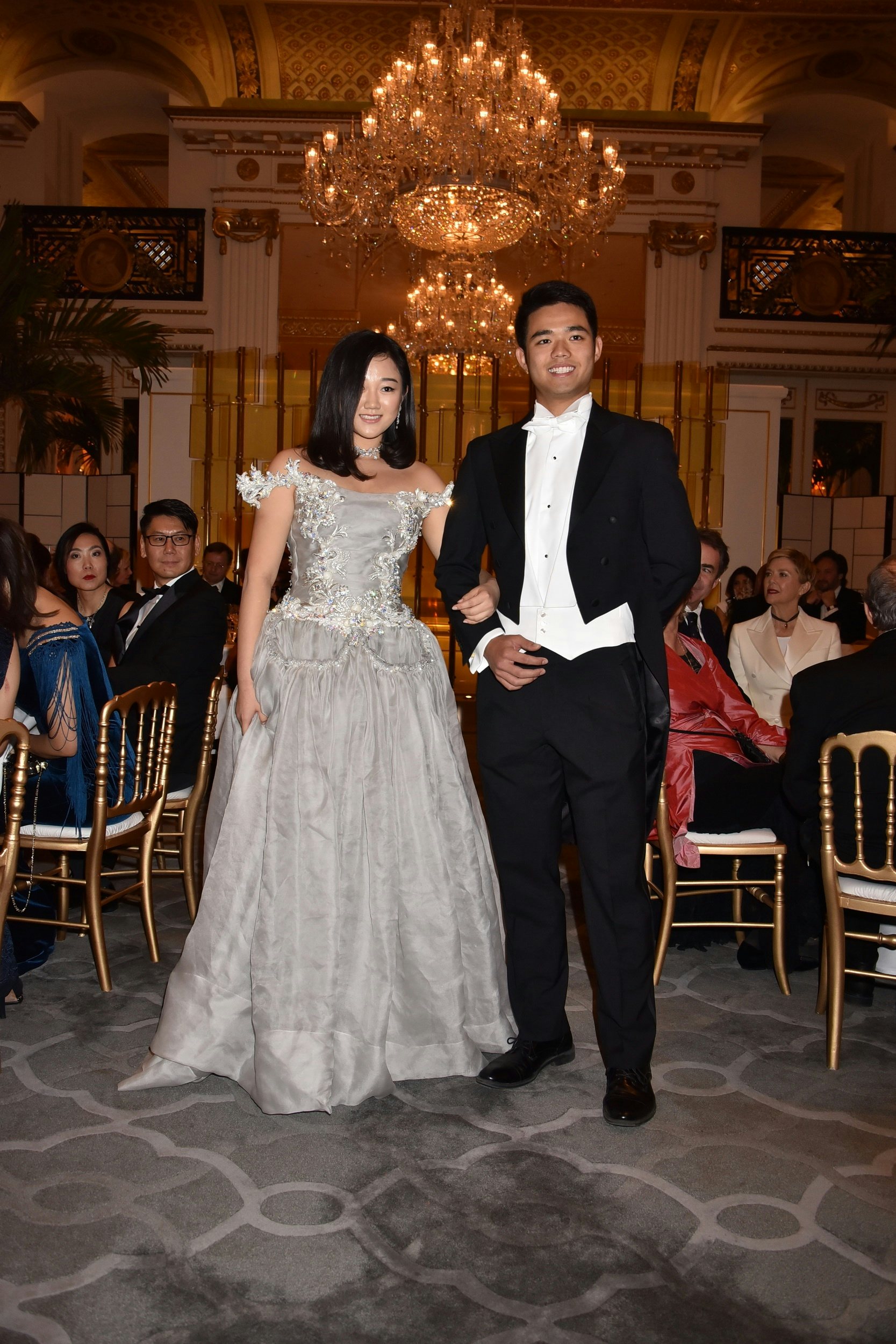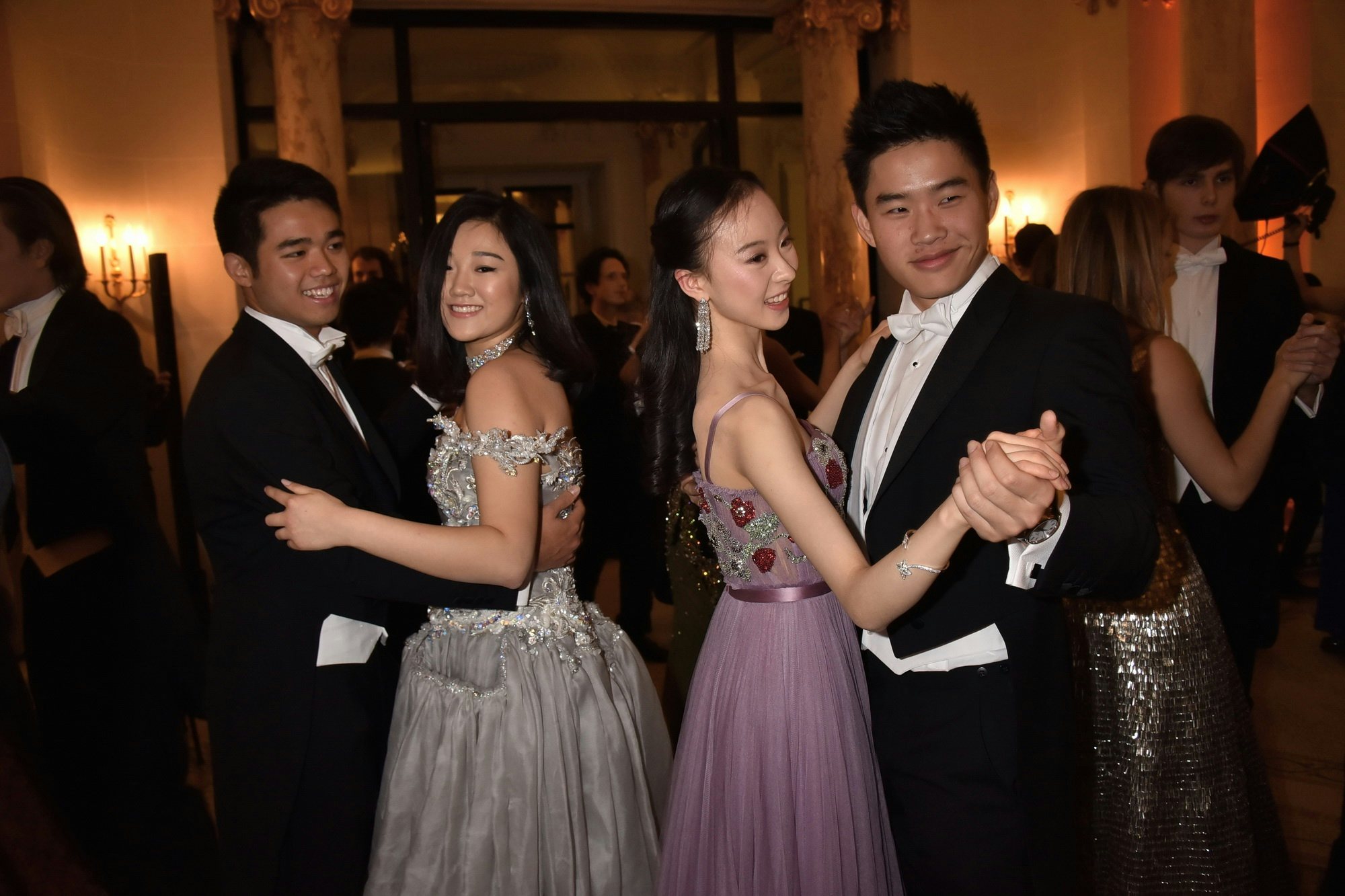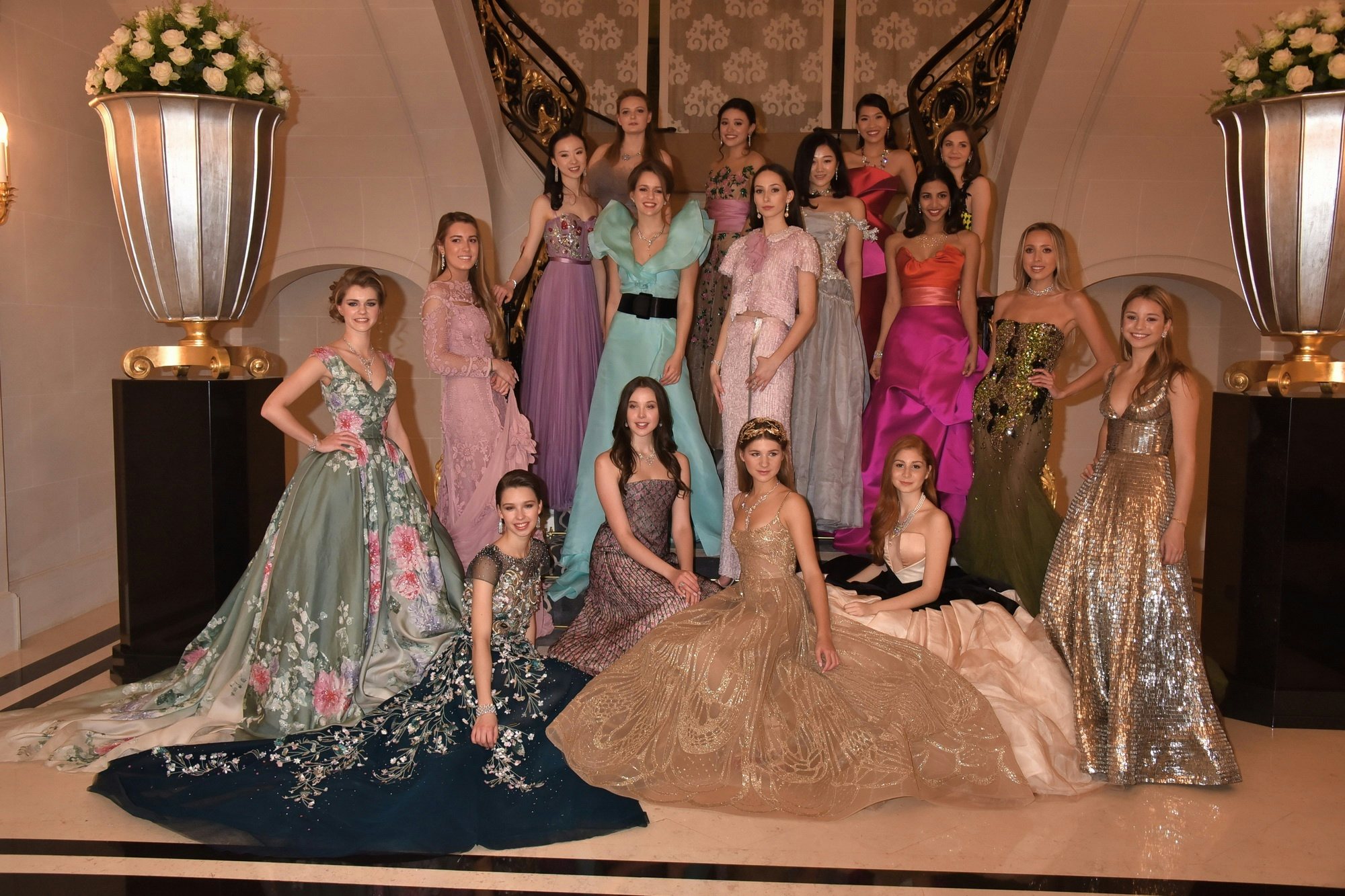A high-society tradition of 19th-century Europe, debutante balls once served as a way for aristocratic families to debut their marriage-age daughters in hopes of quickly matching them with an eligible bachelor of proper status and birth. In 2016, the glamorous tradition is still going strong—but with a few modern-day changes reflecting power shifts among the global elite.
Serving more as philanthropic galas with a twist rather than upper-crust marriage markets nowadays, debutante balls across the world attract a diverse group of global elites not only from Europe, but from countries including Brazil, India—and of course—China.
One of the most exclusive events globally is le Bal des Débutantes in Paris, which took place on November 26 at the city’s Peninsula hotel this year and is frequently featured in the pages of Vogue and Vanity Fair for its parade of haute couture gowns. An invitation-only gathering that features the daughters of royalty, celebrities, business moguls, and political elites from across the world, Chinese debutantes are now a regular fixture at the event.
“We only have 20 debs each year from about 12 countries,” says le Bal founder Ophélie Renouard, who carefully vets potential debutantes. “The purpose is to have two debs from China and possibly one from Hong Kong every year, but every year is different.”
This year’s event featured mainland Chinese participants Hang Yu, an award-winning ballerina who is 16 years old, and Qianhui “Donna” Yuan, the daughter of the billionaire Yafei Yuan, the founder of Sanpower Group, which acquired UK retailer House of Fraser in 2014. They were joined by illustrious participants including Warren Beatty and Annette Bening’s daughter Ella Beatty, the granddaughter of artist Cy Twombly Maïa Twombly, Champagne heiress Olympia Taittinger, and Princess Emilia Von Auersperg-Breunner from Austria.

The growing diversity of the ball was also reflected in its fashion this year. While participants tend to wear mostly Western designers such as Chanel, Elie Saab, and Giambattista Valli, Yuan represented Chinese couture with a gown by designer Guo Pei.
Founded in 1992, the ball has welcomed its fair share or “red princesses,” or daughters of China’s political elites—although they mainly chose to attend before the beginning of China’s anti-corruption campaign in 2012 prompted the country’s “princelings” to keep a lower profile.
The availability of possible ultra-rich Chinese attendees ballooned as wealth rapidly rose in the country during the 2000s. China reportedly now has more billionaires than the United States, according to the Hurun Report.
“I always wanted to have debutantes from Asia, and most specifically China, and I succeeded in 2003,” says Renouard. The first participant from mainland China was jewelry designer Wan Baobao, who is the daughter of former State Council vice premier Wan Li, while Chen Xiaodan—the daughter of China Development Bank head Chen Yuan and granddaughter of PRC founding member Chen Yun—made her debut in 2006. Jasmine Li, the granddaughter of former fourth ranking member of the Politburo Standing Committee Jia Qinglin, debuted in 2009.
According to Renouard, the selection process is rigorous to maintain the prestige of the event. “We never had any scandal of any kind in 23 years,” she says of the event’s network of debutantes and their families, which “works like a private club.”
But the lives of politically connected former Chinese participants aren't without their share of intrigue. In May 2016, Jasmine Li was named in the leaked Panama Papers, which unveiled the names of global elites with assets in offshore tax havens, as the owner of two companies in the British Virgin Islands. In addition, Chen Xiaodan was frequently photographed with Bo Guagua before the ousting of his father Bo Xilai, causing speculation about a potential engagement.

Other notable participants have included I.M. Pei’s niece Penelope Pei-Tang and Hong Kong magnate Stanley Ho’s granddaughter Ariel Ho-Kjaer.
“I find all the debutantes through personal connections, or previous debutantes,” says Renouard. She states that while “most of the have famous parents,” that’s “not enough” to earn them an invitation to the ball. “The debs of le Bal are usually hard-working and exceptional in some way,” she says.
This year, the selection of ballerina Hang Yu is a relatively meritocratic pick in comparison to the children of oligarchs who usually attend. The ballet prodigy was the first ever Chinese winner of the prestigious Prix de Lausanne competition in Switzerland, which she was able to achieve after her parents gave up their jobs so she could attend the Shanghai Theatre Academy on a scholarship.
Chinese participants have appeared at other prestigious debutante balls across the world, including London’s traditional Queen Charlotte’s Ball that dates back over 200 years. The first debutante ball in China was started in 2012 by socialite Vivian Chow Wong, the daughter of late Beijing opera singer Zhou Xinfang. Her Shanghai International Debutante Ball is also an international affair, inviting participants from across the world—in fact, it’s so international that it didn't invite a single participant from mainland China in its first year.

Instead of introducing ladies to eligible bachelors, the balls tend to have a heavy emphasis on philanthropy, which is very slowly catching on with China’s ultra-rich. The younger generation has shown particular interest in it. “I think if you have the resources, it should be used to do more meaningful things,” says Yuan.
Renouard says there are several key things that are particularly appealing to Chinese elites about the balls. "I think that Chinese are perfectionists and hard workers. They value excellence, which is a major component of le Bal, and they enjoy traditional events," she says. "I also think that here is a historical bond between China and France, and we appreciate one another. Le Bal is a representation of a certain art de vivre à la française that the Chinese like, as they are now interested in other cultures."
Preparations for the modern-day ball, including waltz lessons and gown fittings, need to be injected into the schedules of young overachievers more focused on getting into Ivy League colleges than finding a suitable bachelor at this point in their lives. Yuan said that in addition to the typical preparations, she went to the gym for two hours a day to get ready for her debut. “I believe it is extremely a meaningful and fresh experience from preparation to participation,” she says. Meanwhile, Yu states, “because I am very busy with school, it is hard to find time for preparation, but I can deal with it.”
“I think that the young generation is very different,” says Renouard, who says the ball is still a “rite of passage” despite the current debutantes’ cultural differences with those of the past. “Education is key, and at a certain level of studies, they all go to the same schools and universities.”
Both political and business elites in China send their children to top schools abroad, often starting with boarding school (Jasmine Li attended Hotchkiss and then Stanford, for example). “They are all global citizens,” according to Renouard, who notes that there is “less and less” difference every year between the different nationalities attending. “They also feel privileged to be part of such a small group,” she says, emphasizing the fact that the participation will likely help their career without mentioning marriage prospects. “Most debs become well known professionally after le Bal.”
With the anti-corruption campaign still ongoing, this year's ball marked an absence of China's political "red princesses." But Renouard says demand from China to attend is still high. "In 2017, the perspective is excellent" that there will be two mainland Chinese debutantes again, she states. As for the ones who don't make the cut, there are many other options across the world. "When we cannot accept a deb, I always suggest to ask the organization in NYC."
